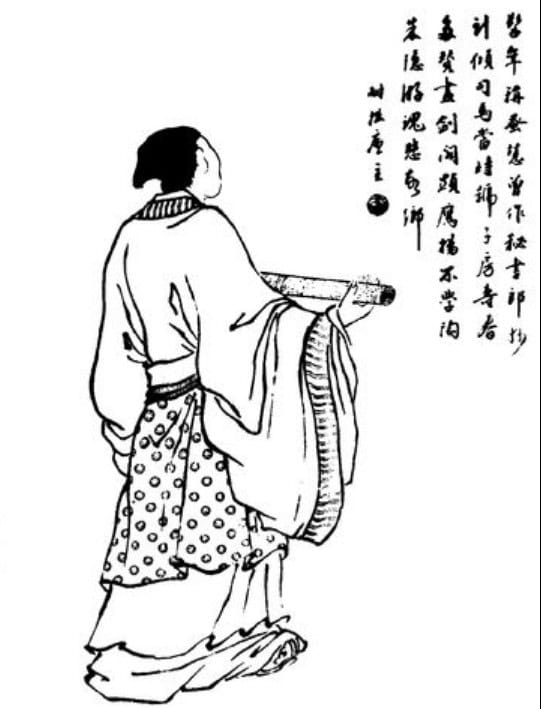Zhong Hui
TLDR: Zhong Hui (225–264 CE), a Wei general, framed rivals to seize power, led the conquest of Shu, but his rebellion against Sima Zhao ended in failure and death.
Man, when I first stumbled upon the story of Zhong Hui, I was absolutely blown away. This guy was like a real-life Game of Thrones character, but way more intense! Born in 225 CE, Zhong Hui rose through the ranks of the Wei kingdom during the Three Kingdoms period, becoming one of the most brilliant and ambitious military minds of his time. I mean, this dude was so smart he was writing commentaries on philosophy as a teenager! But what really gets me is how his life was this crazy rollercoaster of military victories, political scheming, and ultimately, a daring rebellion that could’ve changed the course of Chinese history.
Early Life and Career of Zhong Hui
Zhong Hui, born in 225 CE, hailed from a distinguished family in Changshe, located in the commandery of Yingchuan (present-day Changge, Henan). His father, Zhong Yao, was a prominent statesman and calligrapher who served as one of the most powerful figures in the early Wei regime. This prestigious lineage provided Zhong Hui with a solid foundation for his future career.
From a young age, Zhong Hui demonstrated exceptional intellectual prowess. His education began at the remarkably early age of three when his mother introduced him to the Xiaojing (Classic of Filial Piety). He then progressed through a rigorous curriculum that included the Analects, Shijing (Classic of Poetry), Shujing (Book of Documents), and the Yijing (Book of Changes), the latter with his father’s commentary. At fourteen, Zhong Hui’s academic journey continued at the imperial academy, further honing his already impressive skills.
Zhong Hui’s early achievements were notable:
- Began his official career as an assistant in the palace library during the Zhengshi era (240-249 CE)
- Quickly promoted to deputy secretary at the Central Secretariat
- Recognized as one of the brightest minds of his generation, alongside Wang Bi
His rise through Wei’s military ranks was equally impressive. By the time he was in his thirties, Zhong Hui had advanced from Palace Attendant to Metropolitan Commandant, and finally to General of the Suppression of the West in 262 CE. His political acumen and military prowess culminated in his appointment as Chief Minister of Culture and Instruction in 263 CE, one of the highest positions in the state.
Zhong Hui’s Role in Suppressing Zhuge Dan’s Rebellion
Zhong Hui played a crucial role in the suppression of Zhuge Dan’s rebellion, demonstrating his political acumen and military prowess. In 257 CE, despite being in mourning for his mother, Zhong Hui immediately recognized the potential threat when the Wei imperial court summoned Zhuge Dan to Luoyang. He took the initiative to warn Sima Zhao about the likelihood of Zhuge Dan’s disobedience, showcasing his foresight and loyalty to the Sima clan.
During the campaign against Zhuge Dan, Zhong Hui’s strategic brilliance came to the fore. He accompanied Sima Zhao as part of the imperial forces sent to quell the rebellion in Shouchun. One of Zhong Hui’s most significant contributions was his suggestion to exploit internal divisions within the Eastern Wu forces supporting Zhuge Dan. He proposed using forged letters to create discord between Quan Yì, who was leading the Wu reinforcements, and his relatives Quan Hui and Quan Yí, who had defected to Wei. This clever ploy aimed to weaken the alliance between Zhuge Dan and his Wu supporters.
Zhong Hui’s strategic thinking extended beyond military tactics. He advised Sima Zhao to employ psychological warfare against the besieged forces in Shouchun. By spreading rumors about imminent Wu reinforcements, they tricked Zhuge Dan into being careless with his provisions, ultimately leading to food shortages and defections from his army.
The aftermath of Zhuge Dan’s rebellion saw Zhong Hui’s star rise significantly within the Wei court. His contributions were recognized, and he was offered the prestigious position of Minister Coachman (太僕). However, in a display of political savvy, Zhong Hui declined this offer, instead choosing to serve as a clerk in Sima Zhao’s office. This decision allowed him to remain close to the center of power while avoiding the potential pitfalls of a high-profile court position.
Zhong Hui’s Involvement in the Conquest of Shu
In the winter of 262-263 CE, Zhong Hui was appointed General Who Guards the West and granted imperial authority to manage military affairs in the Guanzhong region. This prestigious appointment marked a significant milestone in Zhong Hui’s career and positioned him as a key figure in the upcoming campaign against Shu.
As part of the Wei invasion plan, Zhong Hui was tasked with leading a formidable force of over 100,000 troops through the Xie Valley (斜谷) into Shu territory. This strategic route, located southwest of present-day Mei County in Shaanxi, was one of the main invasion corridors into the heart of Shu. Zhong Hui’s army also utilized the Luo Valley (駱谷) as part of their approach, demonstrating the scale and complexity of the invasion plan.
During the initial stages of the invasion, Zhong Hui made a decision that would have far-reaching consequences. He ordered Xu Yi, the son of the renowned Wei general Xu Chu, to oversee the construction of a road leading into Shu. When the road was poorly built, Zhong Hui, in a display of strict discipline and disregard for Xu Yi’s prestigious background, had him executed for failing his mission. This shocking act sent ripples through the Wei army, demonstrating Zhong Hui’s uncompromising leadership style and his willingness to prioritize military efficiency over political considerations.
Key aspects of Zhong Hui’s invasion strategy included:
- Splitting his forces to attack multiple targets simultaneously
- Utilizing psychological warfare by sending troops to pay respects at Zhuge Liang’s tomb
- Capturing strategic locations such as Yang’an Pass to secure supply lines
Zhong Hui’s Military Strategies in the Shu Campaign
Zhong Hui’s military strategies during the Shu campaign demonstrated his tactical acumen and psychological warfare skills. His approach to capturing Yang’an Pass showcased his ability to leverage subordinates effectively. Zhong Hui ordered Hu Lie to lead the vanguard in attacking the pass, a decision that proved successful as Hu Lie managed to capture it and eliminate the defending Shu general, Fu Qian. This strategic move secured a crucial entry point into Shu territory and provided the Wei forces with access to valuable supplies stored there by Shu.
In his efforts to weaken Shu’s defenses, Zhong Hui employed a multi-pronged approach by simultaneously attacking Hancheng and Lecheng. He dispatched his subordinates Xun Kai and Li Fu, each leading 10,000 troops, to assault these locations respectively. Although the Shu officers Wang Han and Jiang Bin initially managed to hold their positions, this strategy effectively divided Shu’s attention and resources, putting pressure on multiple fronts.
Zhong Hui’s use of psychological warfare against Shu forces was particularly noteworthy. In a display of respect and cunning, he sent his men to pay homage at Zhuge Liang’s tomb near Mount Dingjun. This gesture likely aimed to unsettle Shu troops by invoking the memory of their revered strategist. Furthermore, Zhong Hui composed a lengthy address to the Shu forces, urging them to surrender. By appealing directly to the enemy troops, he sought to undermine their morale and resolve.
Key elements of Zhong Hui’s strategy included:
- Utilizing skilled subordinates for crucial tasks
- Coordinating simultaneous attacks on multiple targets
- Employing psychological tactics to demoralize the enemy
| Strategy | Implementation | Outcome |
| Capture of Yang’an Pass | Ordered Hu Lie to lead the attack | Successful capture, eliminated Fu Qian |
| Multi-front assault | Sent forces to attack Hancheng and Lecheng | Divided Shu’s attention and resources |
| Psychological warfare | Paid respects at Zhuge Liang’s tomb, wrote to Shu forces | Attempted to undermine enemy morale |
Zhong Hui’s Consolidation of Power
Zhong Hui’s consolidation of power during the Shu campaign was a masterclass in political maneuvering and opportunism. Following the successful invasion, he systematically eliminated potential rivals and centralized control under his command.
The framing of Zhuge Xu and Deng Ai was a crucial step in Zhong Hui’s power grab. He accused Zhuge Xu of cowardice, effectively discrediting him and removing him as a potential threat. Deng Ai, who had achieved significant victories in the campaign, posed a more serious challenge to Zhong Hui’s ambitions. In a calculated move, Zhong Hui fabricated charges of treason against Deng Ai, leveraging his own political connections to make the accusations stick.
With his rivals discredited, Zhong Hui moved swiftly to seize command of their troops. This consolidation of military power was a critical step in his ascent, as it placed him in control of a vast army. By the time Shu surrendered to Wei in 263, Zhong Hui had maneuvered himself into a position of full control over all Wei military forces in Shu territory.
Key aspects of Zhong Hui’s consolidation of power:
- Strategic elimination of rivals through political accusations
- Rapid assumption of command over multiple army units
- Centralization of military authority in Shu territory
Zhong Hui’s Rebellion
Zhong Hui’s rebellion in March 264 CE marked the culmination of his ambition and political maneuvering. Following the conquest of Shu, Zhong Hui formed an alliance with Jiang Wei, a former Shu general. This partnership was born out of mutual interest rather than trust; Jiang Wei saw an opportunity to potentially restore Shu, while Zhong Hui sought to leverage Jiang Wei’s military expertise and knowledge of Shu territory.
The planning of the rebellion against Sima Zhao was intricate and daring. Zhong Hui and Jiang Wei devised a two-pronged strategy: first, they would consolidate their power base in the former Shu territory, and then launch a swift attack on the Wei capital of Luoyang. Their plan included using the Xie Valley as a route for the vanguard force led by Jiang Wei to attack Chang’an, while Zhong Hui would follow with the main army. They estimated it would take only five days to reach Luoyang once Chang’an was captured.
However, the rebellion was doomed from the start. Zhong Hui’s reluctance to fully commit to Jiang Wei’s suggestion of eliminating Wei officers proved fatal. When Zhong Hui received a letter from Sima Zhao hinting at suspicions of his loyalty, he panicked and hastily moved to detain Wei officers. This action backfired spectacularly.
Key factors that led to the rebellion’s failure:
- Lack of trust between Zhong Hui and Jiang Wei
- Hesitation in eliminating potential threats within the army
- Underestimation of the loyalty of Wei troops to their officers
The revolt collapsed rapidly when Wei officers, freed by their loyal troops, led a counterattack. In the ensuing chaos, both Zhong Hui and Jiang Wei were overwhelmed and killed. Zhong Hui was only 40 years old at the time of his death, bringing a dramatic end to his ambitious career.
Final Thoughts
Looking back on Zhong Hui’s life, I can’t help but feel a mix of awe and sadness. Here’s a guy who had it all – brains, military prowess, and political savvy – but his ambition ultimately led to his downfall. It’s wild to think about how close he came to potentially reshaping the Three Kingdoms era. I mean, if his rebellion had succeeded, who knows how history might have played out? Zhong Hui’s story is like a cautionary tale about the dangers of unchecked ambition.

